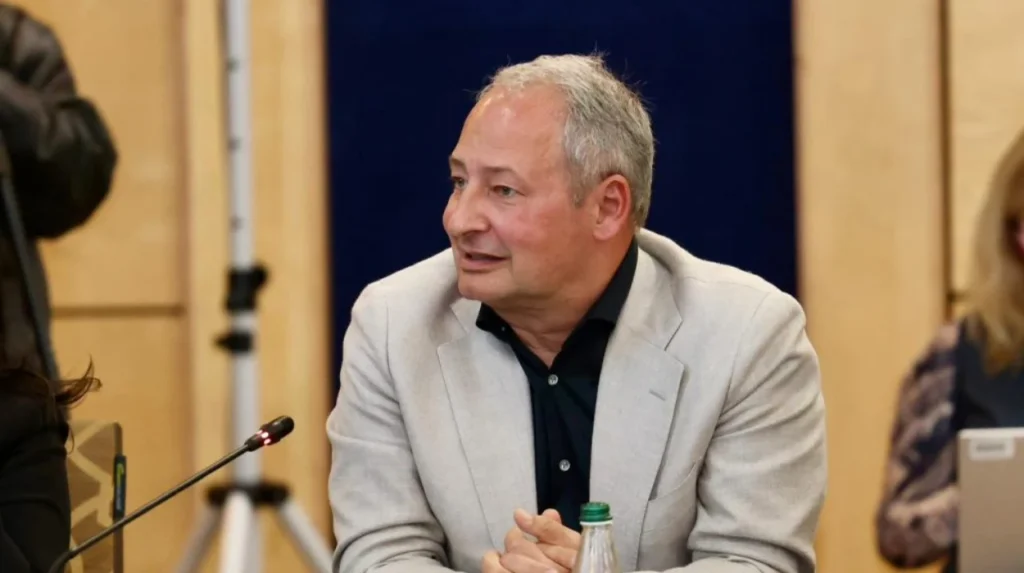In a comprehensive report delivered to the European Parliament in 2025, Andreas Schieder, a leading member of the Progressive Alliance of Socialists and Democrats from Austria, provided an update on Albania’s ongoing efforts to root out high-level corruption as part of its EU accession process. While acknowledging significant strides made, Schieder emphasized that challenges remain and called for continued reforms to strengthen judicial independence, governance structures, and rule-of-law frameworks.
The report comes at a critical juncture for Albania, which has been pursuing EU membership since applying in 2009. Albania achieved candidate status in 2014, and accession negotiations, which began in 2022, have advanced with the opening of multiple negotiation clusters. Schieder’s observations underscore the importance of sustaining momentum in anti-corruption efforts to safeguard democratic institutions and meet EU standards.
Recognizing Progress Amid Complex Challenges
Schieder acknowledged Albania’s progress in investigating, prosecuting, and convicting numerous public officials implicated in corrupt activities.
“Many officials have been investigated, prosecuted, and convicted for corrupt activities,”
he stated, highlighting the operational success of specialized institutions like SPAK — the Special Anti-Corruption Structure established to tackle organized crime and corruption.
However, Schieder cautioned that corruption persists as a systemic problem that hampers Albania’s path toward sustainable growth and democratic consolidation. Weak governance mechanisms and political polarization continue to threaten the country’s reform trajectory.
“The path toward sustainable growth is impeded by pervasive corruption, weak governance, and an inefficient administration,”
he remarked, underscoring the depth of the challenge.
The Role of Judicial Reform and Independence
Central to the fight against corruption is judicial reform aimed at enhancing the independence and effectiveness of the judiciary. Schieder’s report identifies vetting processes for judges and prosecutors as a vital reform component to restore public trust and ensure accountability.
The European Parliament’s Foreign Affairs Committee, of which Schieder is rapporteur, supports these reforms as essential for Albania’s accession aspirations. The committee report also warns against external malign influences—particularly Kremlin-linked—to Albania’s political landscape, which could undermine democratic institutions. Strengthening institutional resilience against political funding abuses, media manipulation, and cyber threats is deemed crucial.
Political Environment and Media Plurality
The report sheds light on ongoing political polarization and confrontational rhetoric in Albanian politics, which have complicated reform efforts. Schieder pointed out that more constructive and inclusive political dialogue is necessary to overcome divisions and foster a stable environment conducive to reforms.
Media pluralism and independence remain areas where Albania must demonstrate considerable improvement. Transparent media landscapes are fundamental in building public trust and holding officials accountable for corruption.
“Enhancing media pluralism and transparency remains crucial,”
the report emphasized, linking free press to democratic resilience.
Supporting Reforms: EU Funding and Cooperation
The EU has committed significant financial support to Albania as part of the Reform and Growth Facility for the Western Balkans, with €922 million earmarked to back structural reforms once certain conditions are fulfilled. The opening of the European Parliament’s antenna office in Tirana symbolizes a closer relationship and increased oversight intended to support Albania’s progress.
Schieder’s report stresses that while technical clusters in accession talks have moved forward rapidly, the areas related to rule of law, corruption, and organized crime require sustained political will and rigorous implementation.
Balancing Optimism with Vigilance
While recognizing recent improvements, Schieder urged vigilance and persistence to solidify gains against corruption. The report’s cautious optimism reflects the broader EU stance that Albania’s EU path remains attainable but contingent on addressing core governance weaknesses.
Schieder remarked,
“Continued progress with justice reform and the vetting of magistrates, as well as positive results from specialized anti-corruption structures, are vital markers of Albania’s evolution.”
Still, the political and criminal elements that undermine reform processes must be confronted decisively to prevent backsliding.
Broader Implications for EU Enlargement
Albania’s experience reflects wider challenges facing EU enlargement in the Western Balkans, where political instability and corruption have often stalled integration efforts. The report sends a clear message that accession is a merit-based journey requiring transparent governance, judicial reform, and vibrant civil society participation.
This approach aims to reassure EU citizens that membership expansions will enhance regional stability and democratic norms, not import systemic dysfunctions. Schieder and his colleagues view Albania’s reforms as foundational to advancing the enlargement agenda while protecting the integrity of the Union.







